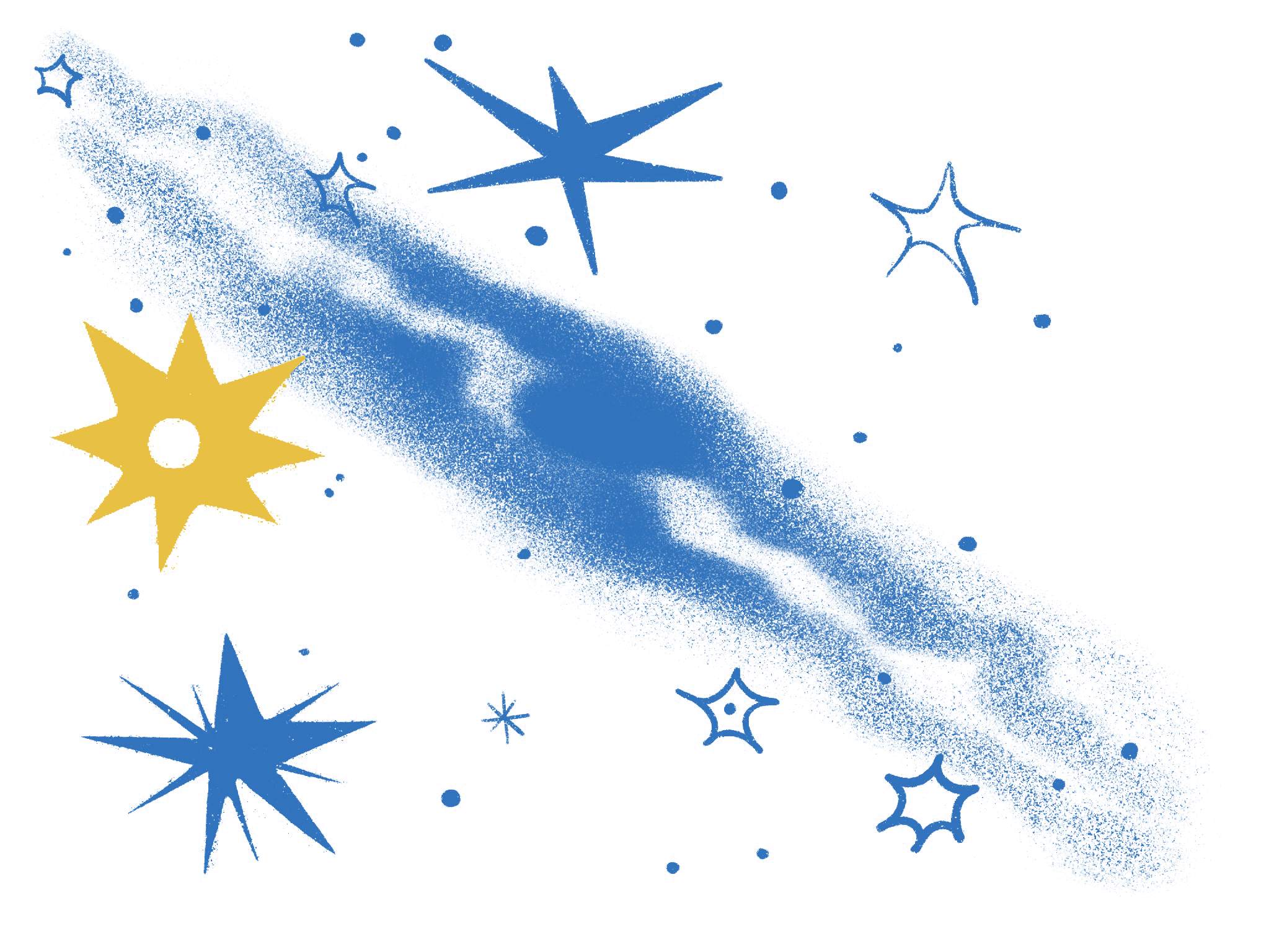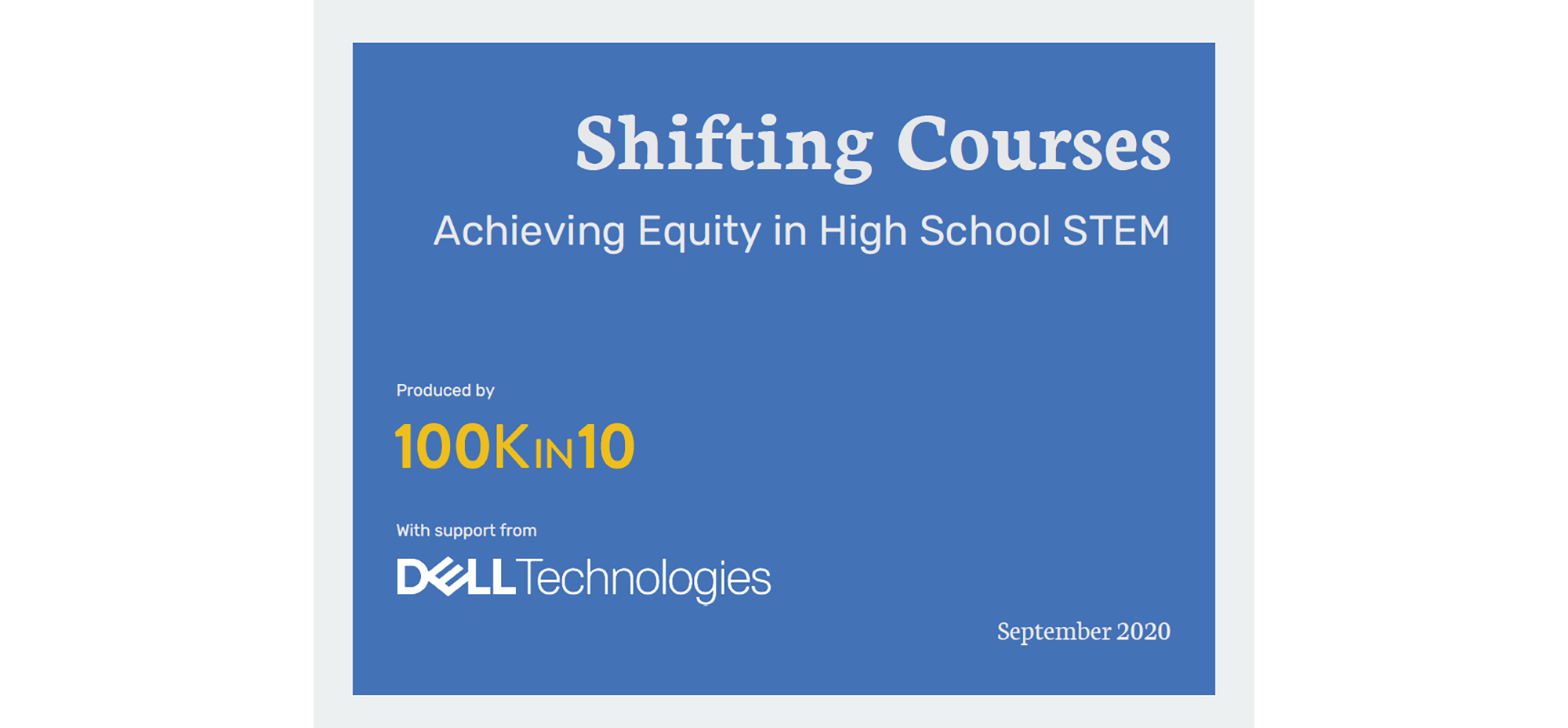
Our Impact
MORE AUTHENTIC STEM
MORE AUTHENTIC STEM
More teachers and students have access to meaningful, authentic, and rigorous STEM learning via 100Kin10 partners
More teachers and students have access to meaningful, authentic, and rigorous STEM learning via 100Kin10 partners
"100Kin10’s support for partnerships between schools and STEM experts enabled teachers and students to build STEM skills grounded in authentic, real-world experiences.
"- Bellwether Education Partners
An Outsized Impact on Computer Science Teaching and Learning
In 2015, Carol Fletcher, Director of Expanding Pathways in Computing at the Texas Advanced Computing Center of University of Texas, took part in 100Kin10’s Fellowship program, which was designed to seed innovations in computer science and engineering education. As a result of this experience, she conceptualized and received funding for WeTeach_CS, which trains K-12 educators to improve access to high-quality computer science experiences for a broad and diverse range of students. Between 2015 and 2018, WeTeach_CS helped more than 500 in-service teachers in Texas earn a computer science certification – more than every university pre-service program in the nation combined.
500+
Texas teachers earned a CS certification through WeTeach_CS between 2015 and 2018
Nikki Hendriks is a former school librarian who became a computer science teacher through WeTeach_CS. “After being a librarian for so long, it really engaged my brain, and it brought in a lot of the math concepts that I hadn't used in years. It was just so challenging and exciting to me.”
By supporting the development and growth of Fletcher’s initiative to increase the number of trained and certified CS teachers, Bellwether Education Partners concluded that “100Kin10 has had an outsized impact on computer science teaching and learning.”
Innovative Assessments Make Space for Stimulating Instruction
Lauren Jones-Kaplan, Director of STEM and Innovation at DSST Public Schools in Denver, worked on a 100Kin10 Project Team with scientists from Fiske Planetarium at the University of Colorado-Boulder to improve the quality of experiential learning and performance-based assessments in science. She shared that the generative nature of partnerships between STEM experts and K-12 teachers — combining expertise in STEM practice and pedagogy — increased student access to high-quality curricula and rigorous, engaging instruction. “I think what we've seen from [our work with the Project Team] is more authentic engagement, students understanding and figuring something out versus being passive learners and just taking in information. Even if a student is not going to ever study or pursue anything in STEM after their K-12 experience, they have a framework and a toolkit for how to solve problems. We definitely could use more of that kind of thinking in society.”
"I think what we've seen from [our work with the Project Team] is more authentic engagement, students understanding and figuring something out versus being passive learners and just taking in information.
"- Lauren Jones-Kaplan, Director of STEM and Innovation at DSST Public Schools
Shining a Light on Equity in High School STEM
In early 2020 100Kin10 began work on its third catalyst -- increasing the range and quality of personally-relevant, career-connected STEM courses in high school, with an explicit anti-racist emphasis and (following the onset of COVID-19) contextualized by what we know about the pandemic’s impacts. In 100Kin10’s most recent partner survey, 53% of partners reported that they increased their focus on the quality and range of high school courses since we launched this effort. In just the first year of work, 87 individuals have participated in 100Kin10’s High School STEM Equity Project Teams, and 38 partners served on the organization’s Brain Trust for high school STEM equity, lending insight and expertise to 100Kin10’s report, Shifting Courses: Achieving Equity in High School STEM.

"With growing concerns about the digital divide, compounded by the impacts of the pandemic and widespread racial inequity, we need to continue to push for access to workforce-relevant courses that engage and connect with girls and students of color to increase their aspirations for and success in STEM.
"- Jeremy Ford, Vice President, Giving & Social Innovation at Dell Technologies
Connecting Classrooms to Real-World STEM
The STEM Teacher and Researcher (STAR) Program at California Polytechnic State University provides aspiring teachers with opportunities to do authentic research while helping them translate their research experience into classroom practice. (Learn more about how 100Kin10 impacted the STAR program.) These experiences continue to influence teachers and their instructional approach once they enter the classroom.
Lesley Anderson, Albert Einstein Distinguished Educator Fellow, Library of Congress who also serves on 100Kin10’s Teacher Forum, described how the STAR program helped shape her identity as a teacher researcher as well as her ability to share knowledge with her students: “During the third summer of STAR, I worked at the NOAA Southwest Fisheries Science Center in San Diego on a project that involved learning how to work in a molecular ecology lab to extract RNA from sea turtle blood to compile a library to be used in genomic sequencing. Because of my connection at the NOAA lab site, I was able to establish a partnership between my school and the local university to allow my students to do authentic research in a real laboratory setting. This is especially significant for my students; we are in a low-income community and don’t have the funding to support that hands-on lab experience in the classroom.”
Edgar Massingale worked for decades as an electrical engineer, and after consistently noticing a lack of women and other minorities in engineering and other STEM fields, he decided to become a STEM educator so that he could work on bridging that gap. He became a Noyce Scholar with the National Science Foundation, and was connected with the STAR program shortly thereafter. In the STAR program, Massingale found a unique opportunity to share and garner support for his ideas to increase participation in STEM from Keller and other researchers. Massingale went on to start his own initiative, called Spaceship Earth, to further his work to increase diversity within STEM and make STEM education fun. As one of his students Chloe stated, “The work that we're doing with Soul Science and Spaceship Earth really feels like an actual, tangible opportunity to make change. Instead of just brainstorming, we use the scientific method and the engineering design process to troubleshoot how you would solve [problems].”
